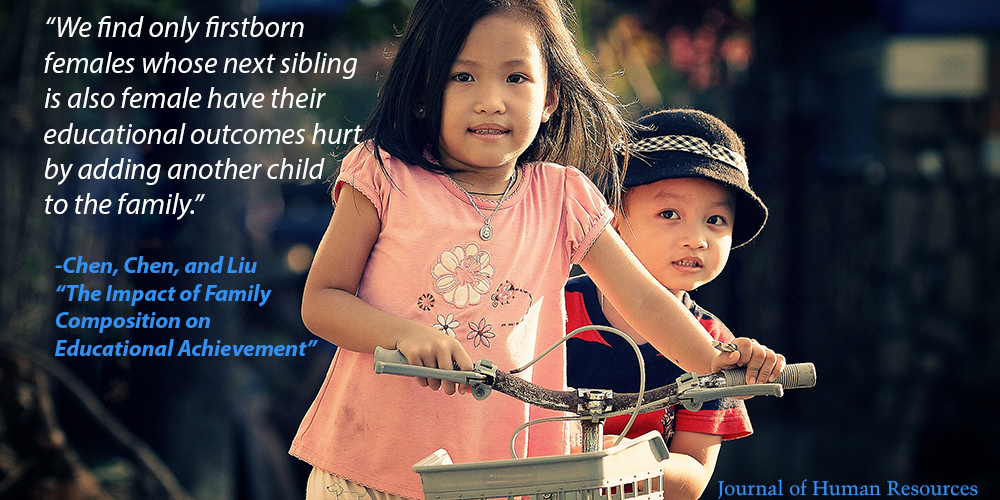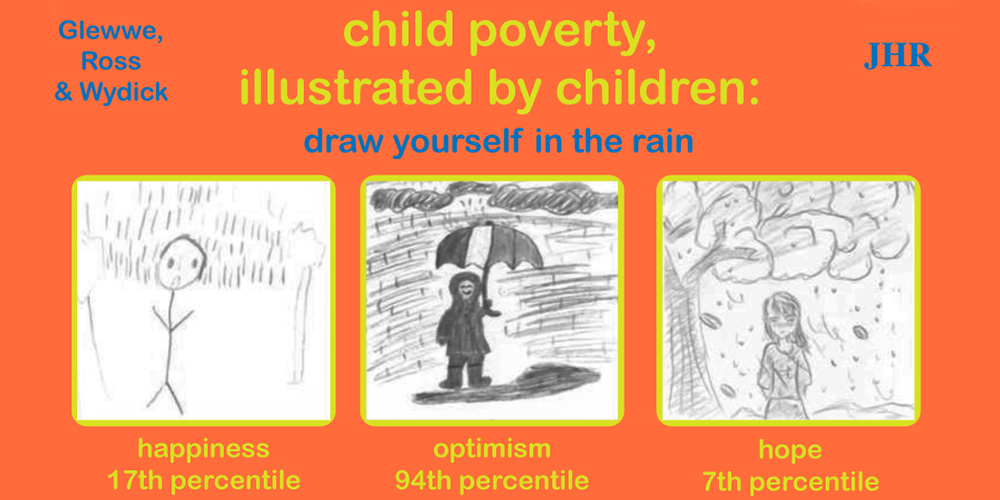When Families Want Sons, Do Daughters Get an Education?
Gender bias in families is evident in many regions, but the evidence to date does not allow us to fully understand its effects. Stacy H. Chen (National Graduate Institute for Policy Studies, GRIPS), Yen-Chien Chen (Chi-Nan University, Taiwan), and Jin-Tan Liu (National Taiwan University and NBER) studied the educational outcomes of children in more than 965,000 families in Taiwan to better understand the experiences of daughters and sons.
Their research gets to the central problem of previous studies. Earlier studies tried to control for family size to separate direct and indirect effects of having a son on other children’s outcomes, but it was impossible to fix observed family size if parents kept having children until a son’s birth. They proposed a simple way to address this issue — they focus on the sibling gender effects on the firstborn, not on children born later, because later-born children only exist if parents keep “trying for a boy.” Instead of fixing observed family size, they fix the potential family size as if the next sibling were male.
So, how did sibling gender composition affect firstborn sons’ and daughter’s educational outcomes in the direct and indirect channels? Did both firstborn girls and boys complete high school and attend college?
In the direct channel, they find only firstborn females hurt by the next brother if they fix the potential family size. In the indirect channel, only firstborn females benefit from the next brother because parents stop trying for another boy. When parents can freely control their fertility choice based on their preference for sons, the direct and indirect effects of a next brother on firstborn females cancel each other out. That’s why most of the earlier studies couldn’t see any effect. In contrast, whether the next sibling is female or not does not affect firstborn males in both channels.
They also find firstborn sons and daughters receive different family size effects. Only firstborn females whose next sibling is also female have their educational outcomes hurt by adding another child to the family. In contrast, whether adding another child to the family or not does not affect firstborn males at all.
According to the authors, this result sends a warning sign to policymakers: “If parents’ ability to control their total fertility is restricted (as in the case of the two-child policy in China), the overall impact of sibling gender could be negative and much greater.”
Read the full study in the Journal of Human Resources: “The Impact of Family Composition on Educational Achievement,” by Stacey H. Chen, Yen-Chien Chen, and Jin-Tan Liu.




